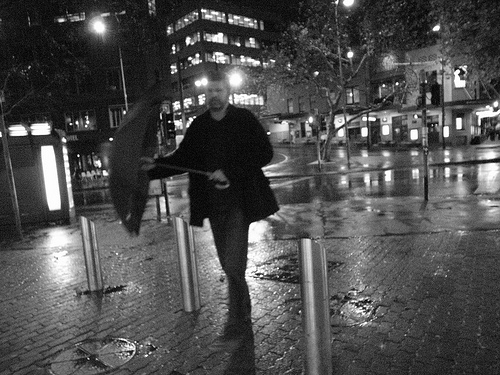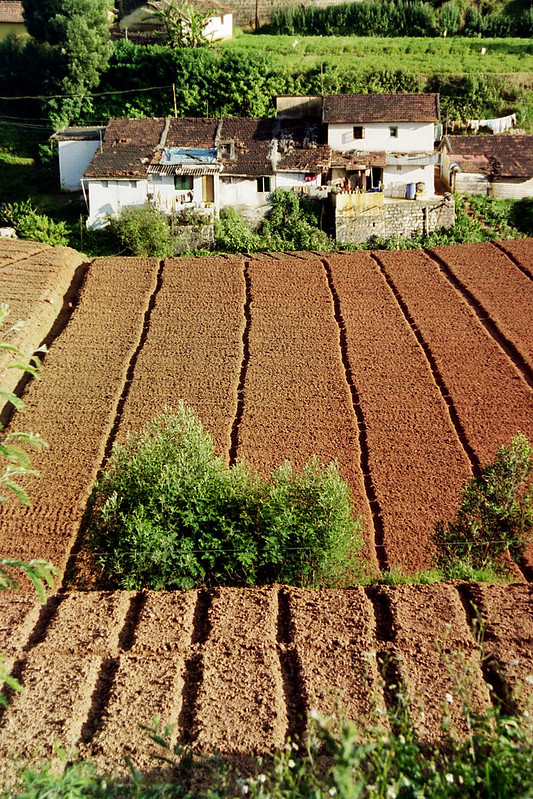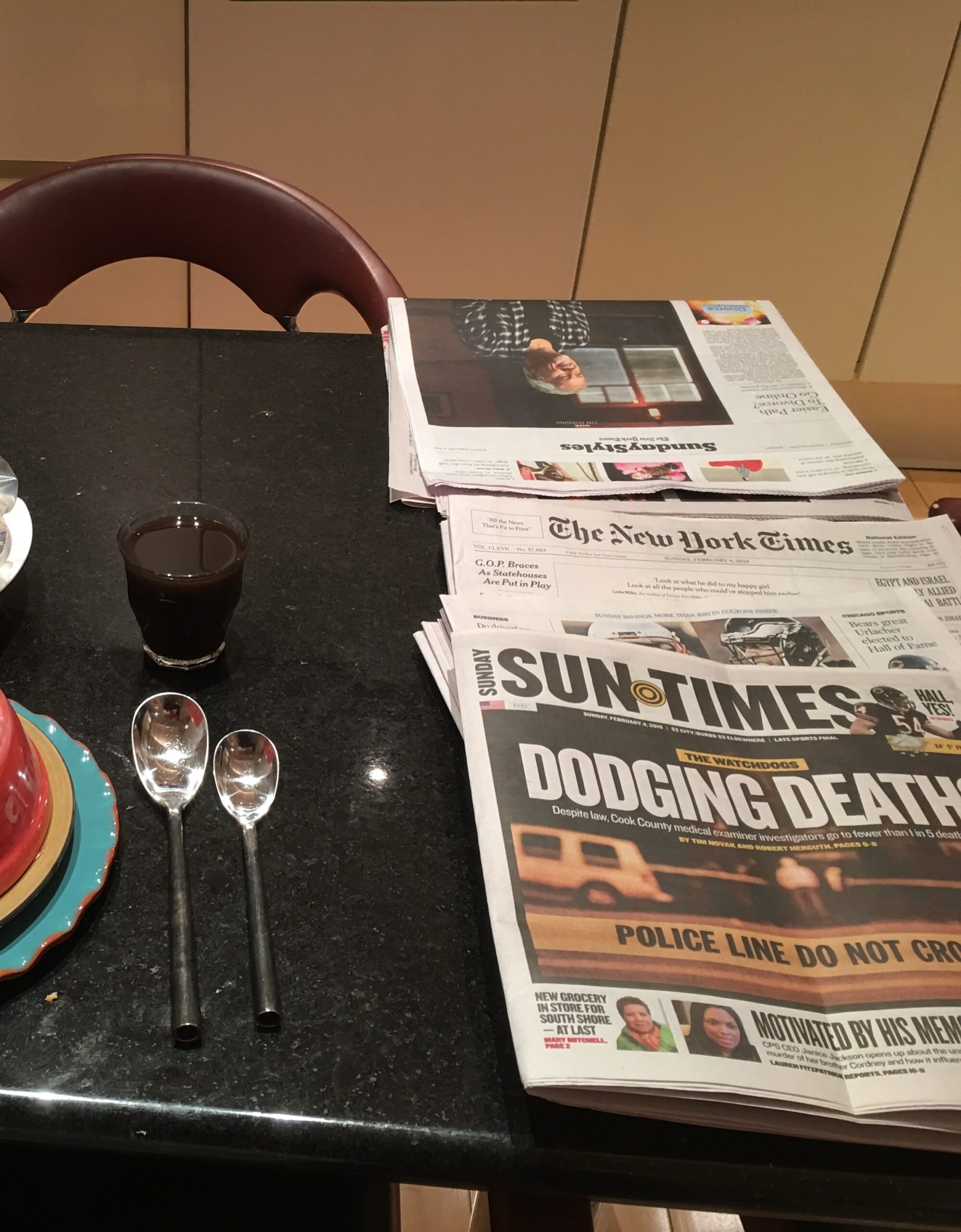On the walk to Central Station I struggled to obey simple gravity. My limbs felt weightless, my feet didn’t feel at all. With each step, I had to remind myself to touch pavement again, as if in a moment’s forgetfulness I might slip the earth’s magnetic pull and go pinwheeling over Sydney Harbor and out to sea.
Randle stumbled along beside me, drinking from a can of Tooheys wrapped in a brown paper bag. He was drunk, so he appeared weightless, too. We were a pair, the two of us floating through the crowds of students and foreigners basking in the December sun outside the pubs and cafés along Stanley Street. I scanned the sidewalk tables, hoping to avoid familiar faces, especially other Americans. All that summer we had been coming to Stanley Street, just down the hill from the trannies and the strip clubs of Kings Cross, Randle after work at his mother’s bake shop, me after doing nothing much at all, to drink and flirt with all the pretty young travelers sleeping off their jet lag in the Kings Cross hostels on their way to Cairns or Melbourne or Bali.
“Oh, rise, ye sinners,” Randle had called up from the street when he’d come by my flat an hour earlier. “There’s company at the door and they’re fucking thirsty.”
Upstairs in the bedroom, I’d rushed to the window, a sheet wrapped hastily around my waist. Randle, in shorts and flip-flops and a faded golfing shirt, looked up from the cobbled street, his eyelids at half-mast, grinning like a sleepy child.
“There you are, ya randy Yankee bastard!” he called out. “I’ve been looking all over for you.” When he was drunk, he forgot to cover the gap in his smile, second tooth from the left. “Bolt the door, mate. Randle’s coming in to inspect the goods.”
Judith followed me down the stairs, naked under my flannel bathrobe. Judith was a doctor’s daughter from the broad-lawned Northern suburbs: shy and blonde and not yet twenty – a second-year student at Sydney University. We had been sleeping when Randle tossed the first pebble against the bedroom window, and now she hung back, one arm around my waist, bleary-eyed and flustered by the interruption. By way of introduction, Randle kissed her on the mouth.
“Either I’m pissed out of me head or you’re the most beautiful girl I ever saw,” he boomed, raising his can of Tooheys in a toast.
It took an hour to get rid of him, and even then I had stop in at the pub with him for a middy and another Tooheys for the road. When we reached Central Station, I tossed his half-finished can in the trash and bought him a ticket at the window. He followed me, obedient as a bird dog, as I walked to the gate and studied the timetables for the next train to Parramatta, where Randle lived with his mum and his two sisters. The weightlessness had left him now and he stood heavily in the railway lobby, swaying visibly.
“You reckon she’s the one then, yeah?” he said.
“I think so,” I said, tasting the strangeness of the words on my tongue. “I’ve never met anyone else like her.”
Randle nodded and turned back to the timetables, squinting to see the numbers. When it was clear I wasn’t going to say anything more, he coughed up a soft, bitter laugh. “Well, fuck you, too, mate,” he said, and smiled, exposing that gap in his teeth, second from the left.
Outside the station, it had started to rain. The brickwork square had emptied and the only people left on the streets were those whose business couldn’t wait and a few young couples walking home from the train. Everyone but the lovers was running, holding limp newspapers over their heads and cursing the rain as they leaped the puddles forming in the gutters. Only the couples walked normally, holding hands and talking, ignoring the brief summer squall.

I fell into step with the lovers, one of them now. In the quiet of my flat, Judith would be getting dressed, brushing her teeth, pinning back her long blonde hair. I would come in wet from the rain and she would find me a towel to dry myself. She might even put the kettle on the stove for tea, and then we would sit together in my small, bright kitchen and talk while we drank it. This, I thought, is why lovers can walk without jackets in the rain. They know someone will be waiting for them when they get home to make them a pot of tea and talk with them while they drink it.
On Stanley Street, the sidewalk tables had emptied in the downpour, and when I poked my head in at Le Figaro, there were only a handful of travelers, sitting singly and in pairs, drinking coffee and writing letters home. The young kid nearest the front door wore the bright, earnest expression of a traveler just off the plane. His spotless orange backpack, a small American flag sewn onto the top flap, stood propped against his table, where he was writing in a leather-bound journal. He wrote a few lines, looked up to study the faces around him, then bent over his journal again, scribbling.
Remember this, I thought as I stepped out into the rain. This is what it’s like to be in love.
Michael Bourne’s short fiction has appeared in print and online in Tin House, The Cortland Review, The Orange Coast Review, River City, Oakland Review, among other journals.
Photo by Flickr Creative Commons user lukmanc.




